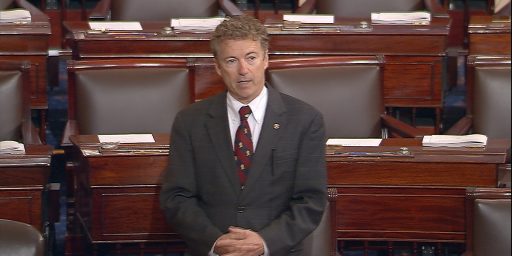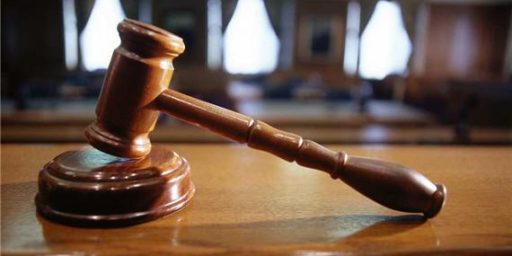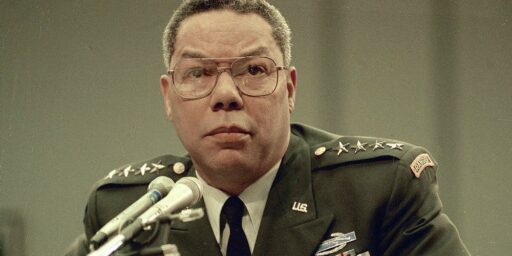Colin Powell Least Traveled Secretary of State in 30 Years
Washington Post – Powell Flies in the Face of Tradition
MSNBC – Colin Powell no globe-trotter
Secretary of State Colin L. Powell hates to fly — and it shows. Powell is on track to become the least traveled secretary of state in more than three decades, since Henry A. Kissinger embodied the concept of the globe-trotting foreign policy guru, according to records maintained by the State Department’s historian. Powell’s three immediate predecessors, the records show, traveled an average of more than 45 percent more than he has.
In Powell’s view, he is bringing the job of secretary of state back to its core purpose of managing foreign policy from Washington. He travels when necessary, as briefly as possible, and reaches out to foreign leaders by telephone and to foreign audiences with repeated television interviews. “His first duty is to advise the president on his foreign policy and to manage the department to execute the foreign policy,” State Department spokesman Richard A. Boucher said. “That’s the job. It’s mostly done in Washington.” Powell speed-dials around the globe, following time zones as his counterparts wake up. By the State Department’s count, he made more than 1,500 calls to foreign officials in the two years after the Sept. 11, 2001, terrorist attacks. In addition to granting interviews to media overseas, he meets regularly with foreign officials here — in both cases, according to Boucher, more than any other secretary in recent memory.
That makes sense to me. Long overseas junkets are a strange thing in a mass communciations age.
Some leading foreign policy specialists — and even some State Department officials — have wondered whether Powell’s travel schedule has in some ways contributed to the United States’ falling image abroad. They argue that behind-the-scenes actions, such as telephone calls, carry much less impact overseas in an era when public diplomacy is increasingly important in advancing foreign policy goals. Telephoning is necessary but not sufficient,” said former U.N. ambassador Richard C. Holbrooke, a leading prospect for secretary of state in a John F. Kerry administration. “In the modern age, like it or not, secretaries have to travel. There is no alternative.”
Why? It would seem to be just the opposite. In days of yore, being there was necessary because there were few viable alternatives. In an age of video-conferencing and crystal-clear secure satellite phones, they’d seem much less necessary.
Shortly before he took office, Powell received a letter from the dean of the diplomatic corps, George F. Kennan, a key aide to Powell’s hero, George C. Marshall. Marshall was a Nobel peace laureate and a secretary of state to President Harry S. Truman. In the letter, which Boucher provided, Kennan argued that Powell’s predecessors had “seriously misused and distorted” the office of secretary of state through their travel. Kennan said much more of the diplomatic heavy lifting should be done by lower-level officials, especially ambassadors, while the secretary remains in Washington. “These absences [should] be held to a minimum and not indulged in when suitable alternatives are available,” Kennan wrote. “The absence of the secretary of state for prolonged periods deprived the president, so long as it endured, of what should have been the latter’s widest, most qualified and most responsible source of advice on foreign policy problems.”
Boucher said Kennan’s letter struck a chord with Powell, who was already thinking along the same lines. Powell, according to aides, told the assistant secretaries of state that they were his battalion commanders and that they would hit the road, but that he would be available if needed.
Which, again, seems reasonable enough. Because of the aforementioned technology, the role of ambassadors has diminished tremendously in recent years, as senior leaders basically skip over them. Putting the people on the ground back into the mode of everyday communications with foreign ambassadors seems imminently reasonable.
An interesting aside buried in the piece that I haven’t seen mentioned in other coverage of this story:
Strikingly, President Bush has spent more time overseas than any other first-term president except his father. Including last month’s trip to Ireland and Turkey, Bush spent 64 days traveling in foreign countries, compared with 78 days for his father and 56 days for Bill Clinton, who ranked third, according to State Department records. White House spokesman Sean McCormack said that Bush has found it invaluable to meet foreign leaders face to face overseas, but that he found no fault with Powell’s travel schedule. “What the president is more concerned with is effectiveness, and Secretary Powell is a very effective secretary of state,” McCormack said.
That should indeed be the criterion. How effective Powell has been is certainly a debatable point. But the idea that his shortcoming is that he’s too lazy to travel is, frankly, rather absurd.






Interesting that Bush spends so much time travelling, since the left always bashes him for spending so much time at Crawford.
Unfortunately, all of Bush’s travels are dedicated to building a coalition to clean up his mess in Iraq. I think the Left and millions of Reagan Democrats will be happy when he spends all of his time at his estates in Crawford and Kennebunkport.
Estates? Kennebunkport?
[giggle]
Attila,
I know your simple-minded worldview has been taken a beating on this site, but you aren’t so far gone that you think the cowboy actually lives in a log cabin, are you? Read Kevin Phillips so you know what you’re talking about. Or visit http://www.kennebunkport.com/ realest99.html
You can pick up a nice estate in Kennebunkport for about $6 million. Not quite what the Bushes are used to, but it’ll get you in the game.